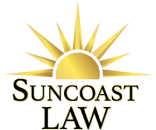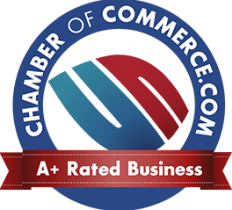Loan Modification
Mortgage Loan Modification Attorney
A home loan modification is an excellent option available to people who are struggling to make their mortgage payments. If you’ve already defaulted on a mortgage or think you will soon, a loan modification can adjust the terms of your loan, saving you from residential foreclosure and making it easier to pay off your mortgage. However, loan modifications must be negotiated with your lender before any agreement can be reached. For this reason, it is important to work with a foreclosure attorney that can help you understand the terms of a modification and advise you on how to proceed.
Additionally, you will receive much needed guidance as you turn in your application and go through the loan modification process. We will help you with your paperwork and do everything we can to negotiate favorable terms with your bank or lender. When you work with SunCoast Law, every effort will be made to help you save money on your monthly mortgage payments.

Challenges
- Loan Modification
- Loan Modification Laws
At SunCoast Law, we have extensive experience obtaining modifications directly from lenders also working with Federal loan modification programs like the Obama Administration’s Making Homes Affordable program (HAMP).We know that successful loan modifications can present homeowners with significant long-term savings on their mortgages and, more importantly, offer them a chance to retain their home in spite of financial difficulty. However, we have learned through experience that getting flexible terms when modifying home loans is not easy. If you are considering loan modification, know that by working with our team, you will have professionals on your side who have experience working on many loan modification cases.
Loan Modification Laws
A wide variety of laws and regulations apply to the terms of loan modifications and are regulated by the Department of Housing and Urban Development (HUD). These rules determine what fees can and can’t be included, what interest rate your loan should be set to, what types of information can be used to set the terms of the modification, and more. At SunCoast Law, we want to provide you with up-to-date information so you understand your legal options. Once you are aware of your right/s and options, we will help you pursue a course of action that is reflective of your individual needs. Whether you want to partake in government loan modification programs or want to consider bankruptcy, we may be able to help you stop foreclosure.
What People Say?

Free Consultations For Valuable Solutions
If you need to find a solution, contact a member of our team. SunCoast Law can help! We offer free initial consultations to all of our clients and would be happy to meet with you one-on-one.
Frequently Asked Questions
If you can afford to keep your home based on your real income and how much you owe on the mortgage, then it is usually the best option available to you and what we typically start out recommending.
The terms of your mortgage have been permanently altered. As long as you abide by the new terms, you will continue to make your new payment each month until the loan is paid in full or until you sell your home.
Yes. Mortgage lenders can deny your request for a loan modification for just about any reason. Your lender, in most instances, is under no obligation to agree to a loan modification.
Qualifying for a loan modification is determined by your mortgage lender, the mortgage servicer and/or the investor that owns your particular mortgage. In general terms, each mortgage lender has set up internal guidelines for loan modifications, so we have a good idea in the beginning whether or not you will be able to qualify.
If you are in default on your mortgage, then you will not have good enough credit to refinance and that isn’t an option. If you are not in default on your mortgage and can qualify for a new one to refinance, then that is always a better option.




